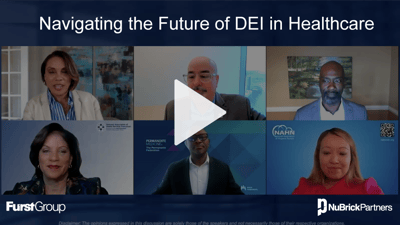Like most healthcare firms, a contingent of Furst Group executives is in Chicago this week for one of the major events of the year: the ACHE Congress.
Like most healthcare firms, a contingent of Furst Group executives is in Chicago this week for one of the major events of the year: the ACHE Congress.
It's quite a large gathering this year with attendance of 5,000 expected. And the Congress has not disappointed, with strong challenges in inspirational speeches from the likes of Ben Carson and Rulon Stacey.
Dr. Carson, the renowned neurosurgeon from Johns Hopkins, encouraged leaders that they often carry the best hope for families facing medical crises, and reminded them to put patients' needs first.
"It's important to have your heart in the right place if you're going to be dealing with people's lives," he told the luncheon.
And he encouraged his audience to be brave and persistent, recalling the story of Walter Dandy, one of his predecessors at Hopkins, whose first 13 patients to undergo a risky brain surgery died. But the procedure Dandy revolutionized is now standard and safe today. ACHE has a clip of Carson's speech on their Facebook page and Modern Healthcare recapped his talk here.
Stacey, the president and CEO of Poudre Valley Health System and the incoming chairman of ACHE, used a powerful story about Canadian telegraph operator Vince Coleman, who sacrificed his life during World War I as he warned a train full of people about an impending explosion, to illustrate how healthcare executives have a unique opportunity to use their leadership to help the lives of others:
"I have learned," Stacey said, "that if each practicing physician alters how he or she provides care to their patients, they will impact the 10 to 40 patients they see each day. However, if a healthcare executive identifies a best practice and effectively implements that change, he or she can impact 100,000 patients a year - more than any single physician can impact in a lifetime."
That's heady stuff. And it's also refreshing to see an exec of his stature so plugged into social media. His entire speech can be found here; it is referenced on his extensive Twitter feed. Portions of his speech can also be found on YouTube though the camera work is a bit shaky.
Let's close with some wisdom from Stacey on how healthcare is changing, and how organizations must change:
"During the next few years, one of the significant challenges for healthcare executives will be transitioning from the "sick-care" system of the past to the "healthcare" system of the future. Financial incentives will change, and during the transition, successful organizations will be the ones nimble enough to keep people healthy while the reimbursement system still pays to take care of people when they are sick. We all know that keeping people healthy is simply the right thing to do. But, make no mistake, those who don't plan well will run the risk of going out of business altogether."


